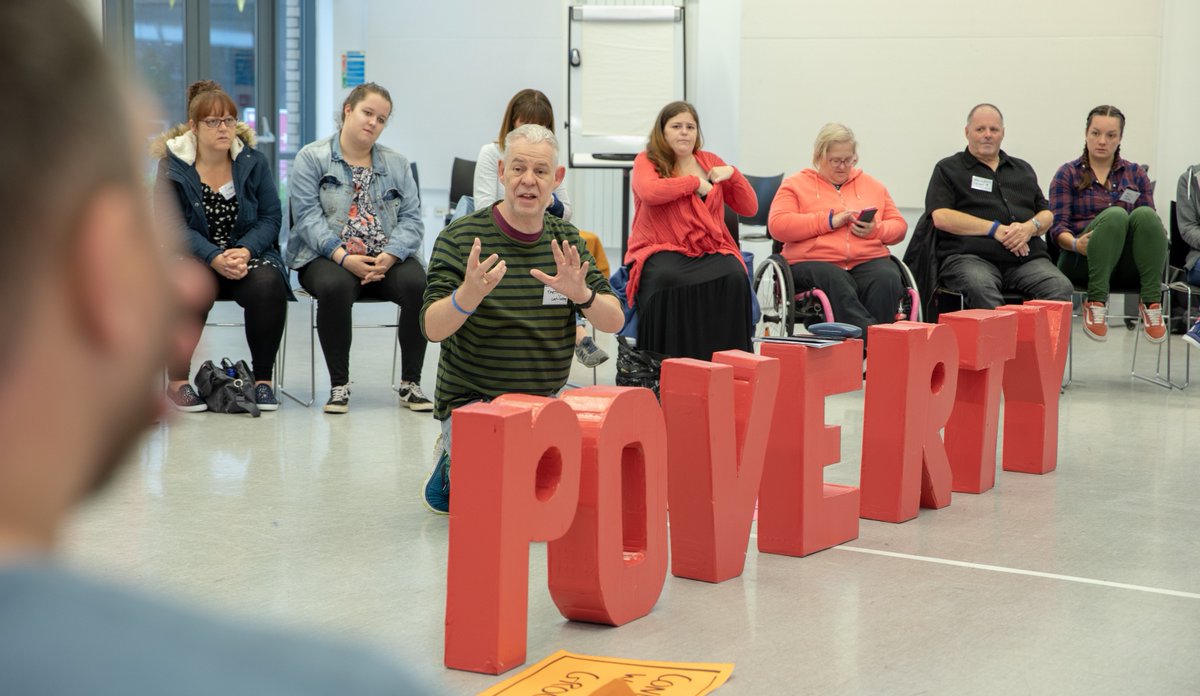Talk of warm banks leaves me cold!
Don’t get me wrong. The plight faced by the millions who are having to choose between eating and heating is appalling and shocking. It should shame us all in what remains one of the richest nations in the world. We need to find ways to respond. But warm banks! Really?
Warm banks sound a lot like food banks so maybe it is worth revisiting their development over the last two decades.
The first Trussell Trust food bank was opened in the UK in 2000. Twenty-two years later, it is estimated that there are over 2,500 of them. They have become emergency feeding stations for millions. The warning signs were there early on. Many pleaded that we did not follow the route already travelled in the USA and Canada, and elsewhere, where emergency food had become hardwired into the welfare state. Or, more accurately, food banks had replaced state responsibility with voluntary activity.
Sadly, those pleas were substantially ignored out of the entirely natural and appropriate desire of communities to do something in the face of people going hungry. Alongside this there has been an unwillingness to challenge the myth that hunger is the result of individual ineptitude rather than the result of failed (and frequently heartless) policy.
Millions now rely on emergency food parcels to feed themselves and their families. The Trussell Trust and IFAN (the Independent Food Aid Network) have become amongst the most vocal advocates for ending the need for food banks.
The task of unravelling what we have created, however, will be a long and arduous one. And, in the meantime, food banks are saying increasingly that they cannot meet the demand. It is not that they don’t want to. It is because, ultimately, the problem is not about a lack of food. It is about a lack of money. It is why they are advocating a cash first approach.
It is also why many food banks are amongst those expressing an anxiety in the apparently rising enthusiasm for warm banks. Warm banks are an emergency response to the reality that people cannot afford to heat their homes. It is not about a lack of energy, at least for the moment. It should be obvious that, once again, it is about a lack of money.
This time around the situation is even more challenging. Food banks can give people enough food to keep people fed for a few days. Warm banks, as currently conceived, can only provide warmth for a few hours before people have to return to cold homes. This is why, however we respond, the burden of paying our collective energy bill needs to be much more equitably shared.
If changes in the ways that energy is generated and paid for (and how homes are insulted) are critical elements of what we need to be about, on their own they cannot address the immediate crisis. An emergency response to an emergency situation is required. So as funders, organisations, charities, neighbourhoods, faith groups and individuals think about how we might best respond, are there some principles that it would be useful to bear in mind? I would suggest three that are worthy of consideration:
- Whatever our response, let’s make sure we develop it in collaboration with those who are at the sharp end of this crisis. This is not only to avoid making crass and stupid mistakes but also in order that we embed dignity into any response from the outset. I am still haunted by the friend struggling against poverty who told me that he would rather crawl backwards over broken glass than suffer the indignity of entering a food bank to ask for food.
- Whilst any response might be needed for longer than we would hope, we need to plan for the short term and constantly refresh what we are doing in response to changing circumstances and local wisdom. This feels counter intuitive but is necessary if we are to avoid the temptation of making something permanent that should only ever be temporary.
- Whenever people come together, a critical part of the task should be to build, or more accurately, enable community. Just because some people are struggling to pay the bills does not make them/us any less members of society. Playing, singing, making, dancing, eating, cooking, plotting together means that what is created is always more than a less cold space.
None of this is easy to say and it is even harder to do. We will make mistakes along the way. But let’s not repeat the mistakes of the past. We can do better than that.
Talk of warm banks leaves me cold!


